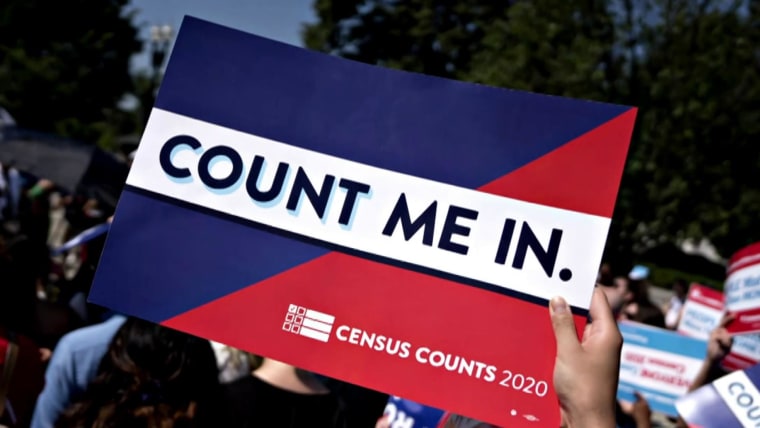WASHINGTON — The Census Bureau on Monday released state population totals that determine each state's number of House seats, with just seven seats moving among 13 states — the smallest shift since the current congressional apportionment model was adopted in the 1940s.
Texas was the biggest winner, gaining two House seats. Colorado, Montana, Oregon, Florida and North Carolina each gained one seat.
The losses were concentrated in the industrial Midwest, with Illinois, Michigan, Pennsylvania, West Virginia and Ohio each losing a seat. Democratic strongholds California and New York each lost a seat. Census officials said New York would not have lost its seat if 89 more people lived in the state.
That 89-person difference was what separated New York from maintaining its 27th seat versus Minnesota keeping its eighth, which it managed to hang on to.
Kristin Koslap, a senior technical expert for the 2020 Census Apportionment Division, said Monday at a news conference that "it's not unusual for there to be a small margin" in population that determines whether a state gets an additional seat, loses one or maintains the status quo.
In terms of total population, the census counted 331,449,281 Americans, a 7.4 percent increase from the 2010 census. California remains the largest state and Wyoming the smallest.
The average population per-House seat is now 761,169 people, an increase of more than 50,000 per-district from the average of 710,767 in 2010.
The release Monday followed delays because of the pandemic and legal battles over the Trump administration’s handling of the decennial count. The numbers were announced by Ron Jarmin, the bureau's acting director. The information, however, did not include a deep breakdown along demographic lines or a full drop of the 2020 census data.
The count, which occurs every 10 years, determines the number of congressional seats and Electoral College votes each state receives. The demographic data to be released later this year will help determine how federal money for roads, schools and other public works projects is distributed across the country.
Kimball Brace, a redistricting expert with Election Data Services, and William Frey of the Brookings Institution predicted Texas would gain three seats and Florida two seats. Arizona, Colorado, Montana, North Carolina and Oregon were each expected to gain one seat.
Meanwhile, Alabama, California, Illinois, Michigan, Minnesota, New York, Ohio, Pennsylvania, Rhode Island and West Virginia were predicted to each lose a congressional seat, they said, though Brace said New York could lose a second seat as well.
That Arizona did not gain a seat came as one of the bigger surprises on Monday. The state, which grew by more than 766,000 people since the 2010 census, was not awarded an additional seat for the first time since 1950.
The Census Bureau's announcement comes after the count was mired in controversy because of the Trump administration’s efforts to exclude undocumented immigrants from the state population counts. President Joe Biden reversed that directive soon after taking office as well as one former President Donald Trump issued that ordered the bureau to collect citizenship information about every U.S. resident using administrative records, which came after the Supreme Court nixed the Trump administration's effort to add a citizenship question to the census questionnaire.
The bureau last year postponed the deadline for completing the count from the end of July to the end of October because of the pandemic. Then, last summer, the agency announced that the deadline would be changed to the end of September, cutting off a month, after the Republican-controlled Senate failed to take action on a Census Bureau request for more time to turn in the numbers.
The bureau missed a Dec. 31 deadline for turning in the apportionment numbers, and it kept pushing back the dates for releasing the numbers after not-unexpected irregularities were found in the data.
The Associated Press, Ali Vitali and Dartunorro Clark contributed.
"House" - Google News
April 27, 2021 at 03:21AM
https://ift.tt/2RZpF0l
Texas picks up two House seats in newest census while Democratic stronghold states lose out - NBC News
"House" - Google News
https://ift.tt/2q5ay8k
Shoes Man Tutorial
Pos News Update
Meme Update
Korean Entertainment News
Japan News Update
Bagikan Berita Ini

















0 Response to "Texas picks up two House seats in newest census while Democratic stronghold states lose out - NBC News"
Post a Comment